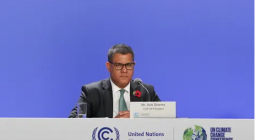It’s time to ban private jets – or at least tax them to the ground
Kylie Jenner, Drake and other celebrities have recently faced criticism for carbon emission-heavy private jet rides, with one of Jenner’s flights reportedly lasting an offensively short 17 minutes.
It might be less insulting if the flights were taken for reasons vital to the survival of the human race or at least the function of government. But these were entertainers and private individuals who have access to first-class commercial flights and the same conveniences of phone and video calls us humble common folk use.
In the last few decades, private jets have become an increasing source of global flight emissions, while providing very little value for most humans on earth. At the same time, the working class has carried the burden of daily sacrifices for the climate crisis, with the poorest of the global working class even forced to flee their homes. It is time that we go after the egregious lifestyles of the wealthy, and invest in public infrastructure that can fill the gaps and provide both the wealthy and the masses with fast and clean transportation.
While private jet usage doesn’t rank as highly as an emission source as do, say, the beef industry or the American military, private jets feel particularly pointless and tasteless – the kind of private carbon indulgence we ought to rid ourselves of on principle. While private jets for events like climate summits may be somewhat justified, it is easy to assume that most other flights aren’t as vital as meetings about the future of the planet.
Environment reporter Oliver Milman covered the impact of all these frivolous flights in a July article, writing that: private aircraft still emit more than 33m tonnes of greenhouse gases, more than the country of Denmark … they are five to 14 times more polluting than commercial planes, per passenger, and 50 times more polluting than trains.
While Drake is jetting across the globe in his multi-bedroom, $185m sky home, working Americans are busy sorting their recycling, going green, and dying in floods made worse by the climate crisis. It is only right that the richest of us begin to make equivalent sacrifices, and giving up private jets isn’t anywhere close to the kinds of sacrifices the predicted 1.2 billion climate refugees around the world are going to make. Accepting measures to severely restrict private flights (and resisting the urge to lobby the laws away) should be a reasonable concession from the wealthy and powerful. Given the state of the world and the increasingly popular trend of trying to overthrow the ruling class, such gestures may play well in the long run for the world’s awfully slender-necked wealthy elite.
If an all-out ban is too unpalatable, then levying severe taxes on private jet flights could at least help offset the damage and put funding toward creating the kind of public infrastructure that we will need to withstand the climate crisis. If the US Congress is feeling too cowardly, it can at least pass measures to prevent billionaires from using their jets for tax write-offs. Jenner’s full trip reportedly covered about 200 miles and totaled 44 minutes. The same trip could have been accomplished with China’s new maglev bullet train in roughly the same time – and carried multitudes more people.
Banning, restricting, or at least heavily taxing private jets is another basic, common sense step that this country can take in erasing the lines between how the wealthiest and poorest of us will weather the crises ahead. Obviously, reducing private jet use itself is not enough – the US and other countries must go further and pass the kind of laws that can prevent the worst-case climate scenario. But in the meantime, ending most private flights – and reallocating the money and carbon expenditure they require – is at least a crumb we should snatch from our obscenely wealthy overlords.
-
Akin Olla is a contributing opinion writer at the Guardian




